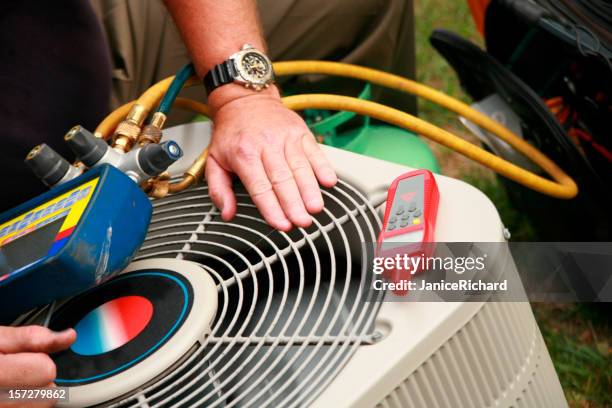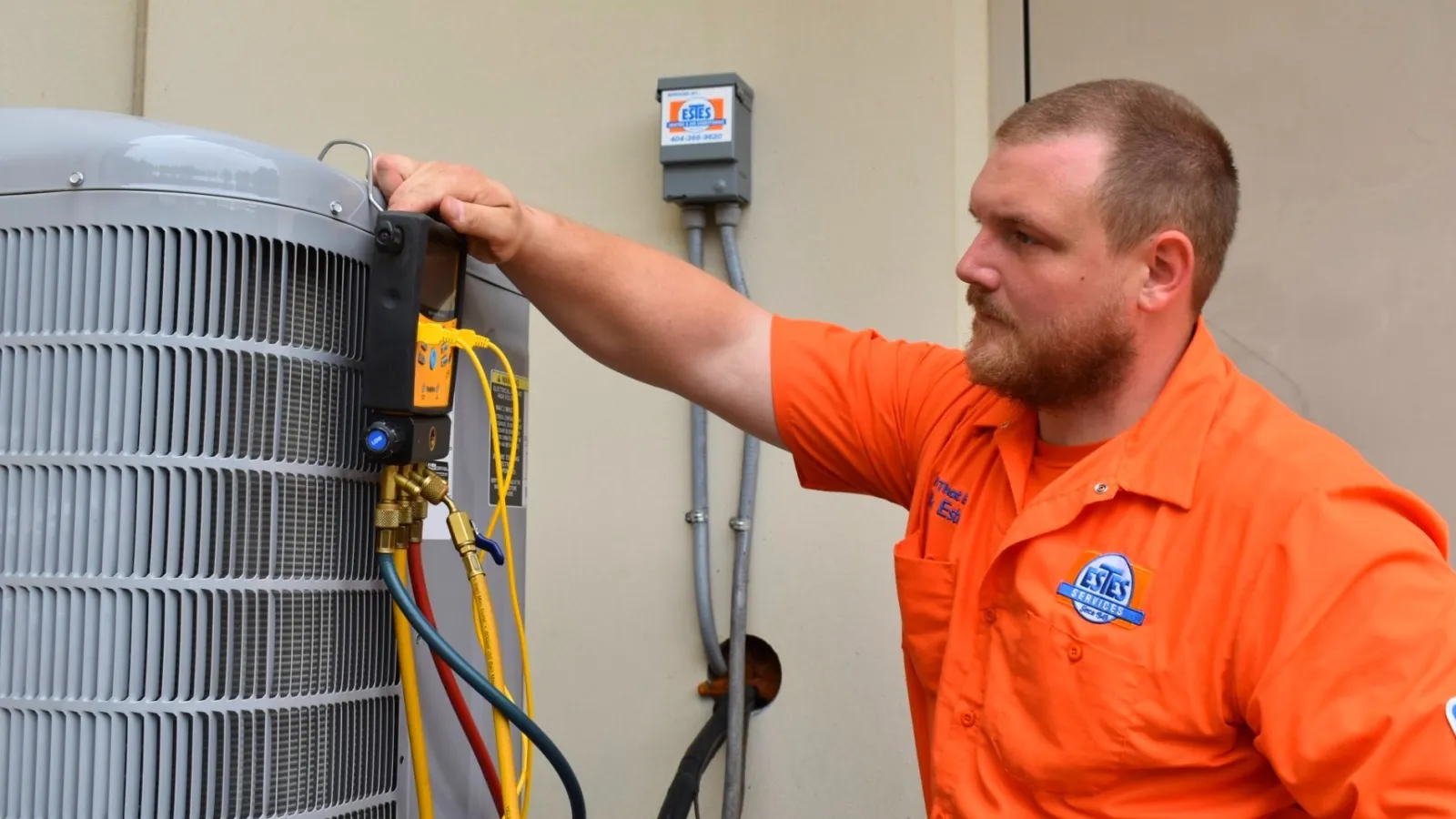Selecting In Between a Heatpump and Heater: Trick Factors To Consider for Your HVAC Needs
When evaluating home heating choices for HVAC needs, the decision between a heatpump and a heating system can be complicated. Each system offers distinctive benefits tailored to certain environments and energy efficiency objectives. Understanding these distinctions is vital for making an informed selection. Secret variables such as setup costs and ecological effect further complicate the option process. Which choice truly straightens with one's comfort and sustainability choices? The adhering to sections will explore these factors to consider thoroughly.
Comprehending Warmth Pumps: How They Work and Their Benefits
While numerous property owners take into consideration different home heating options, recognizing exactly how warmth pumps function and their benefits can considerably influence their choice. Heatpump operate by transferring warm as opposed to producing it. In the winter months, they remove warm from the outside air or ground and transfer it indoors, while in the summertime, they reverse this process, cooling down the home by expelling warmth outside. This twin functionality makes them flexible for year-round climate control.One of the main advantages of heatpump is their energy performance. They use considerably less electricity contrasted to standard heating unit, potentially leading to reduced utility costs (heat pump installation ooltewah tn). Furthermore, heatpump have a smaller carbon footprint, making them an ecologically friendly selection. They likewise need much less upkeep than traditional systems, adding to lasting expense savings. Generally, comprehending the mechanics and advantages of warmth pumps can assist house owners make educated choices concerning their heating and cooling down requirements
Checking Out Heaters: Kinds, Procedure, and Benefits
Furnaces can be found in different types, consisting of gas, electrical, and oil models, each with distinct functional systems. Recognizing these differences is essential, as they impact efficiency and home heating performance. In addition, furnaces provide countless advantages, such as regular heat outcome and reliability in cooler environments.
Sorts of Heaters
Heater can differ significantly in design and procedure, with heating systems being a preferred choice among home owners. There are numerous sorts of heating systems, each making use of different gas resources and technologies. Gas heating systems prevail, leveraging gas to create heat efficiently. Electric heating systems, on the various other hand, make use of electrical resistance to create heat, typically preferred for their uncomplicated setup. Oil furnaces, while less usual, work in areas with minimal gas access (furnace replacement). In addition, condensing heating systems take full advantage of power effectiveness by catching and recycling exhaust gases. Each kind runs with a system of warm exchangers and ductwork to distribute warm air throughout a home. Recognizing the differences between these furnace kinds is important for notified heating and cooling decisions
Advantages of Furnaces
For homeowners seeking trustworthy warmth throughout chilly months, the benefits of furnaces are significant. Furnaces supply consistent home heating, guaranteeing even temperature levels throughout the home. They are specifically reliable in severe cold, frequently outshining heatpump in freezing problems. Different types, consisting of gas, electric, and oil heaters, provide adaptability to meet diverse needs and preferences.Furnaces also tend to have reduced preliminary installment costs compared to heatpump, making them a much more obtainable option for lots of. Their durable design adds to a longer life-span, with many systems lasting over 15 years with proper maintenance. Additionally, contemporary furnaces are frequently furnished with advanced technology for boosted efficiency, which can result in lowered energy costs. In general, heating systems stay a reliable choice for efficient home heating.

Power Performance: Comparing Warm Pumps and Furnaces
When contrasting power performance in between heatpump and furnaces, the Seasonal Energy Performance Proportion (SEER) plays a necessary duty in identifying performance. Furthermore, an operational price evaluation exposes the long-term financial effects of each system. Recognizing these variables can direct house owners in making educated decisions concerning their heating remedies.
Seasonal Power Effectiveness Proportion
Power performance plays a crucial duty in the decision-making process in between heatpump and heaters, especially when thinking about the Seasonal Energy Efficiency Ratio (SEER) This statistics measures the cooling performance of warm pumps over a whole air conditioning season, offering a standard way to assess performance. Greater SEER rankings show better energy effectiveness, converting to lower energy usage and minimized utility costs. In comparison, furnaces are usually assessed utilizing the Annual Gas Use Efficiency (AFUE) score, which reflects home heating effectiveness. When contrasting these two systems, home owners need to focus on SEER ratings for heatpump, as they directly effect general power cost savings and environmental sustainability. A comprehensive understanding of SEER can significantly influence the long-term contentment and cost-effectiveness of the picked HVAC solution.
Functional Price Analysis
Comprehending the functional prices connected with warmth pumps and furnaces is essential for property owners reviewing their options. Heatpump generally provide higher power efficiency, transforming electrical power into warmth with marginal waste. This leads to lower regular monthly utility expenses, particularly in moderate climates. Alternatively, standard heaters, particularly gas models, may have lower upfront prices but can sustain greater functional expenses with time as a result of fuel prices and efficiency ratings.Moreover, heatpump can function as both home heating and cooling down systems, possibly reducing the demand for separate heating and cooling systems. While first financial investments for warmth pumps might be greater, their visit this site long-lasting cost savings in power performance can make them a much more economical selection for several houses. Careful analysis of regional energy rates is vital to determine the i was reading this most effective option.
Installment Costs: What to Anticipate for every Heater
Setup prices for heating unit can vary considerably in between warmth pumps and heating systems, influencing home owners' choices. Heat pumps normally have higher ahead of time installation costs, typically ranging from $3,500 to $8,000, depending on the unit dimension and intricacy of setup. This consists of the outdoor system, interior handling system, and needed ductwork alterations. Alternatively, heaters have a tendency to have lower preliminary costs, balancing between $2,500 and $6,000, which can be appealing for budget-conscious homeowners. Installment expenditures can boost if comprehensive ductwork is required.Moreover, the choice of fuel type for heating systems-- natural gas, lp, or electrical-- can additionally influence installation costs. While warmth pumps supply energy performance, their initial investment may discourage some purchasers. Eventually, reviewing setup costs alongside long-term cost savings and performance will certainly assist home owners in making notified decisions concerning their heating unit.
Climate Considerations: Which System Executes Better in Your Location
Exactly how do environment conditions influence the efficiency of heater? The efficiency of heatpump and heaters can vary considerably depending on the regional environment. In moderate climates, heatpump stand out by effectively transferring warm from the outside air, making them an energy-saving alternative. Their efficiency diminishes in very cold temperature levels, where they might battle to remove enough warmth. On the other hand, heaters, especially gas versions, give regular and trusted warm regardless of outside problems, making them more suitable in cooler regions.In locations that experience milder winter seasons, heatpump can operate efficiently year-round, providing both cooling and heating. In comparison, regions with rough wintertimes usually gain from the toughness of furnaces. Eventually, understanding the regional environment is vital when deciding look at here now between a heatpump and a heater, as it directly influences their functional efficiency and general performance.
Upkeep Requirements: Long-Term Care for Heat Pumps vs. Furnaces
While both heatpump and heaters require routine upkeep to assure peak efficiency, their certain demands and treatment regimens vary significantly. Heating systems commonly need less regular attention, with yearly inspections being adequate to inspect for gas leaks, tidy filters, and assess general capability. Their simpler layout commonly permits uncomplicated repairs.In contrast, heatpump necessitate biannual maintenance due to their twin duty in heating and cooling. This includes cleansing coils, inspecting cooling agent degrees, and making certain that both the indoor and exterior units function at their ideal. Additionally, heat pump upkeep typically entails even more intricate parts, making professional servicing essential.Neglecting maintenance can bring about lessened effectiveness and boosted power costs for both systems. Inevitably, property owners should think about these long-lasting treatment needs when choosing in between a warm pump and a heater, as positive maintenance can prolong the life expectancy and efficiency of either system substantially.
Environmental Influence: Choosing a Sustainable Heating Alternative
The ecological impact of heating unit is a critical assessment for homeowners seeking lasting choices. Heatpump are typically a lot more energy-efficient than conventional furnaces, as they move warm instead than create it, greatly reducing carbon emissions. By making use of renewable energy sources, such as air-source or geothermal heat pumps, homeowners can better reduce their ecological footprint.On the other hand, all-natural gas heating systems emit greenhouse gases and add to air pollution, though they commonly provide higher warmth output. However, improvements in innovation have actually caused the advancement of high-efficiency heating systems that minimize emissions.Ultimately, selecting a heater involves considering effectiveness versus environmental influence. Home owners are urged to review neighborhood power sources and motivations for sustainable systems, guaranteeing a choice that aligns with both personal comfort and environmental responsibility. The choice influences not just prompt comfort however additionally long-lasting sustainability and ecological health.
Often Asked Concerns
Just How Lengthy Do Heat Pumps and Furnaces Normally Last?
The lifespan of warmth pumps usually varies from 15 to two decades, while furnaces can last in between 15 to three decades. Routine maintenance significantly impacts their durability and efficiency in supplying home heating remedies.
Can I Use a Heatpump in Incredibly Cold Climates?
Heatpump can operate in incredibly cold environments, but their performance diminishes as temperature levels drop. In such conditions, supplemental heating resources might be needed to maintain comfortable indoor temperatures and ensure peak efficiency.

What Is the Sound Degree of Warmth Pumps Versus Furnaces?
The noise levels of heatpump and heaters differ considerably. Generally, heatpump operate more quietly than typical heaters, making them more suitable for those sensitive to seem, while heating systems might generate louder operational noises during home heating cycles.
Are Warm Pumps Suitable for Both Heating & Cooling?
Heatpump are undoubtedly appropriate for both cooling and heating (heat pump installation ooltewah tn). They work by moving heat, giving reliable temperature level control year-round, making them a versatile choice for home owners seeking an all-in-one HVAC solution
What Size Heater Do I Need for My Home?
Identifying the proper dimension heater for a home calls for reviewing variables such as square video footage, insulation quality, neighborhood environment, and the home's design. Consulting an expert can guarantee an accurate analysis and excellent convenience. Warm pumps usually provide greater power performance, converting electric energy right into warm with very little waste. In moderate climates, heat pumps excel by efficiently moving warm from the outside air, making them an energy-saving choice. On the other hand, heaters, specifically gas versions, give reliable and consistent heat regardless of outside problems, making them preferable in colder regions.In areas that experience milder wintertimes, warmth pumps can operate successfully year-round, supplying both home heating and air conditioning. Heat pumps are normally more energy-efficient than typical heaters, as they move heat rather than produce it, substantially reducing carbon discharges. By utilizing sustainable power resources, such as air-source or geothermal warmth pumps, homeowners can even more lessen their eco-friendly footprint.On the other hand, natural gas heaters release greenhouse gases and contribute to air pollution, though they frequently offer higher heat output.